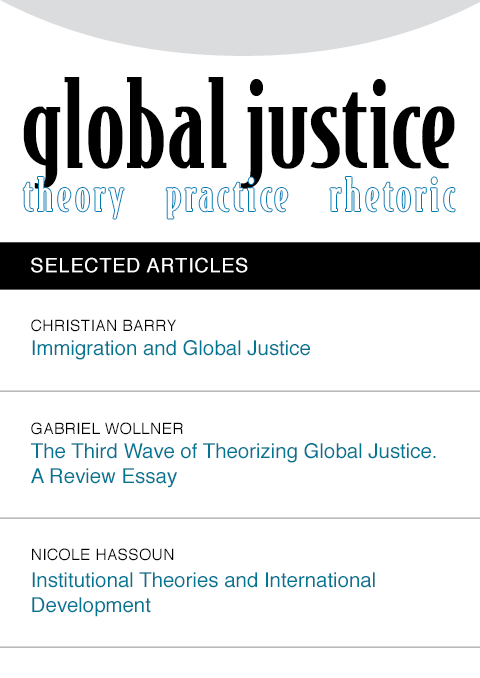The Domination of States: Towards an Inclusive Republican Law of Peoples
DOI:
https://doi.org/10.21248/gjn.9.1.99Keywords:
domination, republicanism, group agency, self-determination, relational sovereignty, global justiceAbstract
The article aims to sharpen the neo-republican contribution to international political thought by challenging Pettit’s view that only representative states may raise a valid claim to non-domination in their external relations. The argument proceeds in two steps: First I show that, conceptually speaking, the domination of states, whether representative or not, implies dominating the collective people at least in its fundamental, constitutive power. Secondly, the domination of states – and thus of their peoples – cannot be justified normatively in the name of promoting individual non-domination because such a compensatory rationale misconceives the notion of domination in terms of a discrete exercise of power instead of as an ongoing power relation. This speaks in favour of a more inclusive law of peoples than Pettit (just as his liberal counterpart Rawls) envisages: In order to accommodate the claim of collective peoples to non-domination it has to recognize every state as a member of the international order.

 Global Justice: Theory Practice Rhetoric (TPR) is a peer-reviewed, open-access e-journal which publishes original research in international political theory, with special emphasis on global justice. We are particularly interested in bridging the gap between political theory, empirical research, and the study of political practices and communication.
Global Justice: Theory Practice Rhetoric (TPR) is a peer-reviewed, open-access e-journal which publishes original research in international political theory, with special emphasis on global justice. We are particularly interested in bridging the gap between political theory, empirical research, and the study of political practices and communication. 


